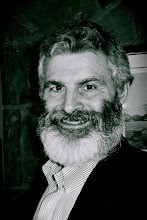Logical
proof that “God” is Consciousness
“Cogito ergo sum” , “I think therefore I am” ,
is the phrase attributed to the French philosopher René Descartes to explain
that an individual does not exist without the awareness of self.
The terms consciousness and awareness are
essentially synonymous in any discussion related to the exploration of
explanations concern the nature of human existence, human reality and
‘beingness’.
Fundamentally, when consciousness exists, all
states of awareness that occur within that unique instance of consciousness
would not exist otherwise. This means that all images, sounds, feelings and
thoughts that occur in any state awareness can only owe their existence to
consciousness.
To extend this concept further to include
shared states of consciousness beyond the singular, an enabling mechanism must
exist. When 2 people communicate with each other, they strive to communicate
the contents of their consciousness. If the contents of an individual state of
consciousness cannot exist without its own existence, then how can 2 individual
states of consciousness share their contents if they did not share the same
essence – consciousness. This implies that these 2 people can only communicate
if they are able to share a state of consciousness between them.
If 2 people can share the contents of their
consciousness through this shared essence, this implies that ALL instances of
consciousness can share the contents of their individual states of
consciousness through this shared essence. For example, a pet dog will respond
affectionately to its owner who is paying positive attention to it thereby
sharing their mutual contents of consciousness; this instance of sharing
contents; however, will be limited to the consciousness capacity of the pet and
owner. If Albert Einstein and Stephen Hawking were to hold a discourse on the
topic of ‘black holes’ , however, the contents of the sharing would occur at an
entirely different level.
As a thought experiment, let's assume that all
sentient beings share a universal state of consciousness. Let's also assume
that all 'reality' that is
individually experienced and selectively
shared by the sentient beings exists within this universal state of
consciousness but is filtered at the level of each unique instance of
consciousness. Finally lets premise that this filtering occurs such that the ability
to experience the contents of this universal state is curtailed as to not
overwhelm the capacity of each unique instance (ie each individual human being,
for example) at its current state of evolution [ example , Einstein vs pet dog]
. If I were to transmit the message "God is Consciousness" by Twitter
or e-mail to every unique state of consciousness that is prepared to receive
such a message, then the contents of my consciousness will be shared
successfully by everyone that is able to receive, read and understand my
message. The instrument of transmission [Twitter, e-mail] of the message also exists
in the consciousness of all who receive this message, otherwise the message
could not be shared. My ability to share this message by Twitter or e-mail
would not have been possible 60 years ago because these communications
instruments did not exist as constructs within this universal, shared state of
consciousness. Only the evolution of consciousness to create and incorporate
these instruments makes this event possible today.
If God is consciousness at a universal level,
and this universal consciousness is shared by the unique, but limited states of
consciousness of all sentient beings, then it follows that all experiences
(images, sounds, feelings and thoughts) that have ever occurred collectively by
all sentient beings must exist with in this universal state of consciousness.
Most religious texts, including the Bible, teach that God knows all things and
is infinitely wise. To the extent of these religious texts are correct, then
the premise that God is universal consciousness as described above is
consistent with these teachings.
If the premise that God is universal
consciousness were to be accepted as a universal truth by all sentient beings,
then there would be no need for competing forms of religion. While there is
much to praise within organized religions and their teachings, the greatest
criticism of these religions is that they create huge and dangerous schisms
between peoples - they indoctrinate their followers to the extent that some of
them will ‘fight to the death’ to defend their beliefs and ensuing way of life.
There will never be peace on earth among men
while these schisms exist and are reinforced.
The above logical proof that “God is consciousness” will be difficult premise to refute on a logical
level. However, it will be resisted on an emotional level to the
extent that anyone has invested the contents of his or her consciousness in a
religious paradigm. This is unfortunate.
To me, all religious organizations are
political organizations, and the most largest and influential of these are also
supported by political institutions within countries. For example, there was a
time many decades ago in the USA that all forms of US currency had inscribed on
it the phrase' E pluribus Unum' [ one
from the many ], which was subsequently replaced
by the phrase "In God we trust". This is an example where a
government decided to active promote a religious paradigm over one that had
previously promoted a unity of purpose for all.
Would it not be better for all states to
promote another phrase that more accurately depicts our shared reality:
"One in all and all in One" ?

No comments:
Post a Comment